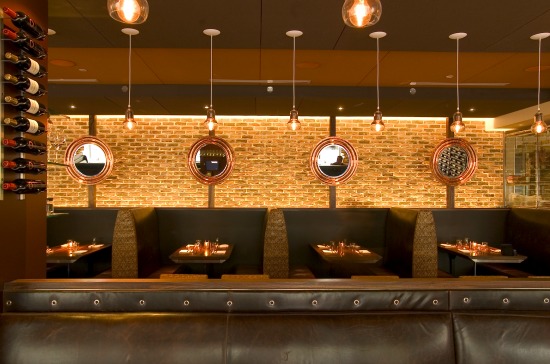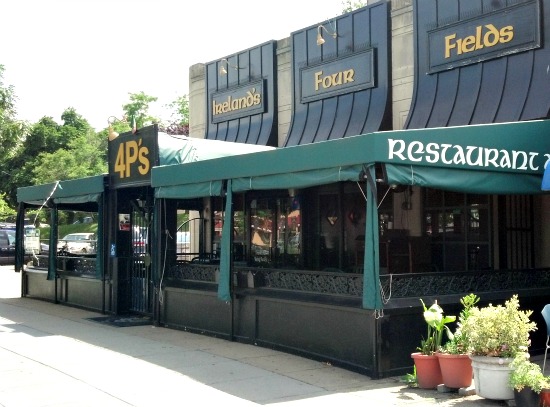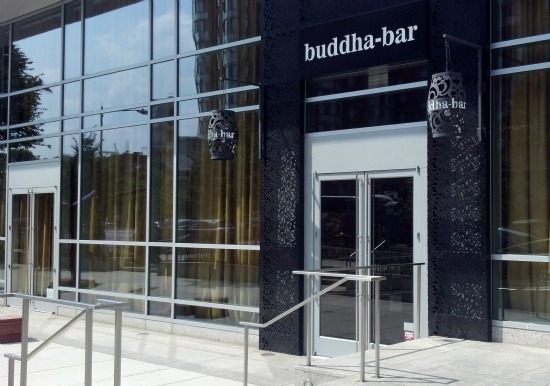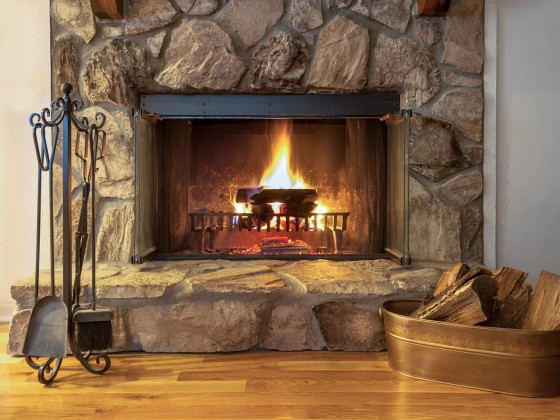What's Hot: Cash Remained King In DC Housing Market In 2025 | 220-Unit Affordable Development Planned Near Shaw Metro
 Competition Cuts Out The Mediocre in DC's Growing Restaurant Scene
Competition Cuts Out The Mediocre in DC's Growing Restaurant Scene
✉️ Want to forward this article? Click here.

The dining room at Proof, which recently had its 5th anniversary. (Photo: Darko Zagar)
It seemed no genre of eatery was safe during the ‘30 Days of Terror’. Swanky lounges, neighborhood bars, longtime restaurants, barbecue joints — at least 15 in all — fell prey to the changing winds of the restaurant business during the month of June.
The owners gave varying reasons for closing their doors — the owner of Zola in Penn Quarter decided to get out of the restaurant business entirely, Buddha Bar’s management cited DC’s “not understanding its concept,” others pointed to reasons that were solely economic.
The closures come during an unprecedented boom for DC’s dining scene. The total number of restaurants in the city has nearly doubled — from 1,100 to 2,000 — since 2001, according to local industry group Restaurant Association of Metropolitan Washington (RAMW). And those numbers don’t include the slew of new spots opening and others that are coming soon.
The wild enthusiasm that has grown around food and restaurants, paired with the seemingly unmitigated growth in the restaurant scene, bears some resemblance to a bubble. But industry veterans UrbanTurf spoke with don’t see the ever-increasing supply outrunning the growing demand.

Four Fields had its last day June 27 after three decades in the neighborhood.
“Closures, as with openings, come in waves rather than consistent numbers throughout the year.” RAMW’s Betsy Allman told UrbanTurf. “If we were in a bubble, then we wouldn’t have the incredibly diverse dining scene that we are enjoying throughout the region.”
“I think DC is still underserved” said Mark Kuller, whose first venture, Proof, just celebrated its 5th anniversary in Chinatown. “As hectic as the pace of closings is, the pace of openings seems to outstrip it.” There are always going to be failures, Kuller added. With margins as tight as they are in the restaurant business, it’s inevitable.
“My dad used to say, ‘There’s one way to win a horse race and 1,000 ways to lose it,’” he said. “The same could be said about opening a restaurant. There’s probably 10 ways to win this horse race and still 1,000 ways to lose it.”
Kuller attributes Proof’s success to his team and their collective ability to create the right energy for the wine bar’s location and clientele. Now, he’s recreated that at Estadio on 14th Street, and is hoping to carry it forward to a new Southeast Asian-focused restaurant, also on 14th Street, which is on the boards to open this winter.
And although 14th Street is one of the hottest strips in the restaurant boom, and thus one of the areas perhaps most prone to become too saturated, Kuller is confident there’s room for more.

Buddha Bar abruptly closed its doors last month.
“I still think 14th Street has room to grow,” Kuller said, citing the new residential projects going up as proof. “You’re not dealing with a static population anymore; you’re dealing with [one that’s] growing.”
But while room for growth exists, not just any new restaurant will do. As urban planner Richard Layman, who writes frequently about the role of restaurants in neighborhood revitalization, points out, the population that Kuller mentioned has grown to expect better restaurants in their neighborhoods. Rather than a sign of a bubble bursting, Layman said that the increased competition will mean longtime downtown restaurants will have to step up their game.
“As other neighborhoods develop critical mass and begin to have quality restaurants of their own, like on Capitol Hill or Logan Circle, it’s going to become a little harder for marginal places downtown,” Layman said. “Who would have thought five years ago that you would just stay in your neighborhood for a great meal.”
Because “everyone has to eat, every day,” Layman noted that it’s unlikely the restaurant industry will experience its bubble bursting the way the housing industry did a few years ago. If anything, the growth will just ensure the success of the best eateries in the city.
“I think the biggest takeaway [from the closings] is that the market’s become much more competitive, and that doesn’t mean that you can’t succeed,” Layman says. “But if you’re not putting out your best game, then it’s going to be hard for you to compete.”
Similar Posts:
See other articles related to: editors choice, restaurant, restaurant news
This article originally published at https://dc.urbanturf.com/articles/blog/competition_cuts_out_mediocre_in_growing_market/5757.
Most Popular... This Week • Last 30 Days • Ever

Today, UrbanTurf is taking a look at the tax benefits associated with buying a home t... read »

Lincoln-Westmoreland Housing is moving forward with plans to replace an aging Shaw af... read »

The small handful of projects in the pipeline are either moving full steam ahead, get... read »

A potential innovation district in Arlington; an LA coffee chain to DC; and the end o... read »

A soccer stadium in Baltimore; the 101 on smart home cameras; and the epic fail of th... read »
DC Real Estate Guides
Short guides to navigating the DC-area real estate market
We've collected all our helpful guides for buying, selling and renting in and around Washington, DC in one place. Start browsing below!
First-Timer Primers
Intro guides for first-time home buyers
Unique Spaces
Awesome and unusual real estate from across the DC Metro













